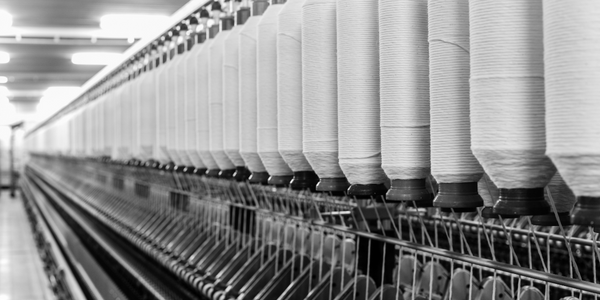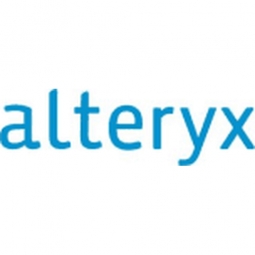公司规模
Large Corporate
地区
- America
国家
- United States
产品
- Alteryx Analytics
技术栈
- Data Analysis
- Spatial Information Analysis
实施规模
- Enterprise-wide Deployment
影响指标
- Productivity Improvements
- Cost Savings
技术
- 分析与建模 - 大数据分析
适用行业
- 服装
- 零售
适用功能
- 离散制造
用例
- 库存管理
- 供应链可见性(SCV)
服务
- 数据科学服务
关于客户
VF Corporation 是一家高度多元化的品牌生活方式服装、鞋类和相关产品公司,通过 35 个品牌和多个分销渠道为全球消费者提供服务。该公司的品牌涵盖五个不同的领域 - 户外和动作运动、牛仔装、形象服装、运动装和当代品牌 - 包括 The North Face、Nautica、JanSport、Lee、Wrangler、Majestic、Splendid 和 Vans 等知名品牌。2012 年,该公司的销售额为 109 亿美元,专注于通过持续的产品创新以及通过批发合作伙伴、自有零售店和有针对性的收购进行地域扩张来实现可持续的长期增长。
挑战
VF Corporation 是一家高度多元化的品牌生活方式服装、鞋类和相关产品公司,该公司希望提高企业盈利能力、支持零售扩张并最大限度地提高公司在 10,000 多个零售点的 100,000 多个 SKU 的绩效。2009 年,公司的 RFSM 组织负责公司与零售商的客户关系管理 (CRM) 工作。虽然该公司已经有一个内部 CRM 数据库,但它还需要关联和分析这些数据以及来自许多其他不同内部和外部来源的大量数据。对于像 VF Corporation 这样规模的公司来说,该公司现有的解决方案不够可扩展或可靠。现有解决方案不允许 VF Corporation 包含空间信息,而空间信息对公司及其零售扩张工作来说正变得越来越重要。
解决方案
VF Corporation 使用 Alteryx 根据对 POS 数据和人口统计信息的同时分析,将产品与消费者和特定商店进行适当匹配。该公司能够将空间信息纳入 Alteryx,以帮助制定新零售店和拟议零售店位置的决策过程。VF Corporation 不仅可以就新店开店地点做出更具战略性的决策,还可以使用 Alteryx 帮助其规划人员和品类经理在商店开门之前将合适的商品摆放在这些商店中。
运营影响
数量效益

Case Study missing?
Start adding your own!
Register with your work email and create a new case study profile for your business.
相关案例.

Case Study
Fire Alarm System and Remote Monitoring Sytem
Fire alarm systems are essential in providing an early warning in the event of fire. They help to save lives and protect property whilst also fulfilling the needs of insurance companies and government departments.Fire alarm systems typically consist of several inter-linked components, such as smoke detectors, heat detector, carbon monoxide, manual call points, sounders, alarm and buzzer. The fire alarm system should give immediate information in order to prevent the fire spread and protect live and property.To get maximum protection a shoe manufacturer in Indonesia opted for a new fire alarm system to monitor 13 production sites spread over 160 hectars. Although the company had an existing fire alarm system, it could not be monitored remotely.It was essential that the new system would be able to be monitored from a central control room. It needed to be able to connect to the existing smoke detector and manual call point. Information should be easily collected and passed on to the Supervisory Control and Data Acquisition (SCADA) system. Furthermore, the system should have several features such as alarm management, auto reporting, being connected to many client computers without additional cost, and run 24/7 without fails. The company also needed a system which could be implemented without changing the architecture of the existing fire alarm system.

Case Study
IoT Applications and Upgrades in Textile Plant
At any given time, the textile company’s manufacturing facility has up to 2,000 textile carts in use. These carts are pushed from room to room, carrying materials or semi-finished products. Previously, a paper with a hand-written description was attached to each cart. This traditional method of processing made product tracking extremely difficult. Additionally, making sure that every cart of materials or semi-finished products went to its correct processing work station was also a problem. Therefore, the company desired an intelligent solution for tracking assets at their factories. They also wanted a solution that would help them collect process data so they could improve their manufacturing efficiency.

Case Study
Improving Production Line Efficiency with Ethernet Micro RTU Controller
Moxa was asked to provide a connectivity solution for one of the world's leading cosmetics companies. This multinational corporation, with retail presence in 130 countries, 23 global braches, and over 66,000 employees, sought to improve the efficiency of their production process by migrating from manual monitoring to an automatic productivity monitoring system. The production line was being monitored by ABB Real-TPI, a factory information system that offers data collection and analysis to improve plant efficiency. Due to software limitations, the customer needed an OPC server and a corresponding I/O solution to collect data from additional sensor devices for the Real-TPI system. The goal is to enable the factory information system to more thoroughly collect data from every corner of the production line. This will improve its ability to measure Overall Equipment Effectiveness (OEE) and translate into increased production efficiencies. System Requirements • Instant status updates while still consuming minimal bandwidth to relieve strain on limited factory networks • Interoperable with ABB Real-TPI • Small form factor appropriate for deployment where space is scarce • Remote software management and configuration to simplify operations

Case Study
Digital Retail Security Solutions
Sennco wanted to help its retail customers increase sales and profits by developing an innovative alarm system as opposed to conventional connected alarms that are permanently tethered to display products. These traditional security systems were cumbersome and intrusive to the customer shopping experience. Additionally, they provided no useful data or analytics.

Case Study
How Sirqul’s IoT Platform is Crafting Carrefour’s New In-Store Experiences
Carrefour Taiwan’s goal is to be completely digital by end of 2018. Out-dated manual methods for analysis and assumptions limited Carrefour’s ability to change the customer experience and were void of real-time decision-making capabilities. Rather than relying solely on sales data, assumptions, and disparate systems, Carrefour Taiwan’s CEO led an initiative to find a connected IoT solution that could give the team the ability to make real-time changes and more informed decisions. Prior to implementing, Carrefour struggled to address their conversion rates and did not have the proper insights into the customer decision-making process nor how to make an immediate impact without losing customer confidence.








